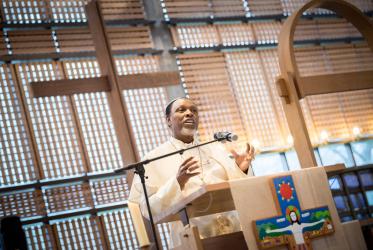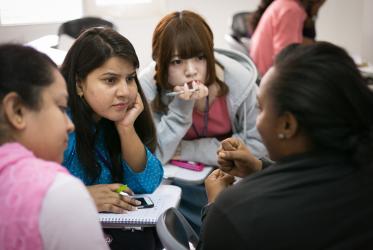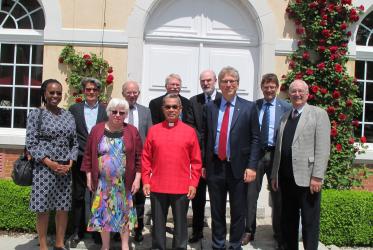Displaying 21 - 40 of 79
21 December 2018
A moment in ‘Time’: an interreligious vision in Erlangen
20 December 2018
Walking together against hatred and violence
26 February 2018
African women embark on pilgrimage in Burundi
29 November 2017
Women in development create space for hope in Egypt
15 June 2017
WCC general secretary speaks on religion and discrimination
14 February 2017
Churches in Norway and Pakistan break new ecumenical ground
26 January 2017
Tveit offers input at religion and development meeting
03 October 2016
In Ghana, women bring open minds, honest words
05 July 2016












